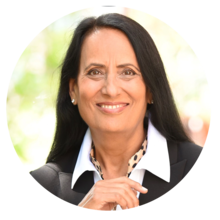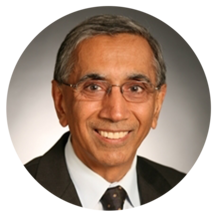About this Presentation
Abstract: This presentation describes the early beginnings of demand-driven MRP with a solid foundation on Theory of Constraints' four pillows of TOC (inherent simplicity, every conflict can be removed, people are good, and never say I know). To address the pillow of “never say I know” the standing on the shoulders of giants process is presented as a framework for advancing one’s understanding of an area: 1. Identify a “giant”; 2. Identify the enormity of the area not addressed by the giant; 3. Get on the giant’s shoulders; 4. Identify the wrong assumption; 5. Conduct the full analysis to determine the core problem, solution, etc. The second major development in the foundation of designing the DDMRP concept was the discovery of complexity science and that today a business requires a complex adaptive system and organizations are living at the edge of chaos. Debra then discusses each of the following points in her development of DDMRP: Our consulting firm focuses on Improving System Flow to Improve ROI; We developed System Solutions Sets because our early clients had either deep BoMs or were vertically integrated; Practical Solution Sets required “real time” visibility to relevant information for decision making around the System Leverage Points; Time, capacity and stock buffers are the linkages that connect and protect the interdependent leverage points in a supply chain; On time, on spec and on quantity are the “Right” metrics for System Flow; Visibility to Flow Metrics is the bridge to break the Cost/Efficiency conflict; Software is a necessary condition for practical, real time, visibility. She continues her discussion of the history of DDMRP, its acceptance by APICS, numerous MRP software providers and global industry leaders. The use of Thoughtware is emphasized to link the interdependencies in the supply chain and understand how to identify and reconcile the gaps caused by variations between what is planned and the actual results. This focused reconciliation process is used to improve the model and future outcomes. Length: 53:41. PDF: 45 slides.
What Will You Learn
To help you get the most value from this session, we’ve highlighted a few key points. These takeaways capture the main ideas and practical insights from the presentation, making it easier for you to review, reflect, and apply what you’ve learned.

Adapting the demand-driven operating model is crucial for improving business operations.
Metrics are important in understanding the performance of a demand-driven operating model.
Bridging the gap between strategic management and operational execution is necessary for successful business operations.
Instructor(s)
Jennifer Eckman

Ms Alka Wadhwa
Alka Wadhwa is an experienced consultant and process improvement expert with over 24 years of expertise in the Theory of Constraints (TOC), Lean Six Sigma, and organizational performance optimization. She has successfully led projects in healthcare, financial services, and manufacturing, driving significant improvements such as a 67% boost in hospital operations and a 140% increase in outpatient visits.
Previously, Alka Wadhwa spent 17+ years at GE Global Research Center, where she led initiatives to enhance various GE businesses through advanced technologies, process redesign, and system optimization. Founder of Better Solutions Consulting, LLC, she specializes in using TOC, Six Sigma, and data analytics to streamline operations and build high-performance teams.
Her work has earned her multiple accolades, including the Empire State Award of Excellence in healthcare.

Dr Gary Wadhwa
Dr. Gary Wadhwa is a Board Certified Oral & Maxillofacial Surgeon with extensive experience in the field. He completed his Oral & Maxillofacial Surgery training at Montefiore Hospital, Albert Einstein College of Medicine in Bronx, NY, and has served as an Attending at prestigious institutions like St. Peters Hospitals, Ellis Hospital, and Beth Israel Hospital in NY. With a career spanning over two decades, he was the former CEO and President of a group specialty practice in NY from 1994 to 2015. Dr. Wadhwa holds an MBA from UT at Knoxville, TN, and has undergone additional training in System Dynamics at MIT, Health System Management at Harvard Business School, and Entrepreneurship and healthcare innovations at Columbia Business School. Committed to expanding access to Oral & Maxillofacial Surgery care, he is currently engaged in a meaningful project to provide healthcare services to underserved populations in inner city and rural areas through non-profit Community Health Centers.
